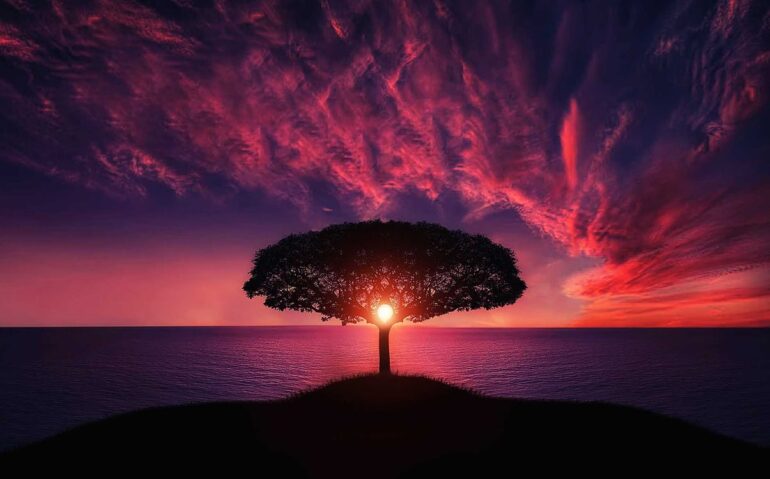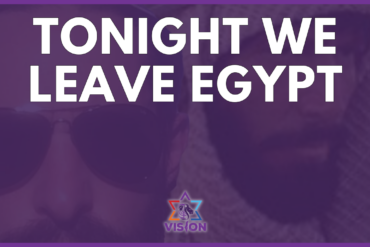Have you ever noticed that some things about the world we live in are a little… off? Have you ever slapped the alarm clock, spent hours in rush-hour traffic, seen your friends suffering with depression or anxiety, hated your job, or watched justice fail over and over again and thought… “There’s got to be another way.”
But then “logic” overpowers you and you see that this has been the case for a long time, and perhaps it will always be this way, and you resign, “It is what it is.”
Well… it’s not. There are other ways. Before our current “enlightened” way of living, there was the Christian Middle Ages, and before that, Greek and Roman empires, and before that, much of the world looked Persian, and before that, the Babylonian mindset seemed the most natural and eternal way, the way it would always be, there’s no getting around it.
And through all of it, while there were many different tribes and cultures always existing simultaneously, there was always one little group of weirdos (or “Others” as in “the other side”) who had a completely different mindset. And in every generation, members of that tribe always wandered off, thinking the wisdom of the dominant culture might be superior to ours, desiring public baths and gymnasiums, or country clubs and discotheques, or whatever was the hip thing at the time. But to the world’s surprise, one by one those infallible empires fell, and those “superior” lifestyles melted away. Meanwhile these weirdos, the Hebrews, no matter how small or powerless or seemingly insignificant, have outlasted all other cultures. And will continue to do so, even after today’s empires fall.
So maybe we’re not so wrong after all.
If you ever find yourself sucked into wishing you were a part of their world, dreaming of a white Christmas or salivating over fast food, before you give up everything that we are, it’s worth exploring what tantalizing nuggets of wisdom and worldview we bring to the table. Because how can you give up on our culture if you don’t really know what we’re all about?
In this series, I’m going to invite you to decolonize your mindset. Lay down the shackles of the capitalist, colonialist, patriarchal, white supremacist/Christian hegemony that you’ve been brainwashed to think is “normal.” Instead, get into a Hebrew state of mind.
Let’s start by decolonizing your concept of time. And who knows? Maybe this will be your day, your week, your month, or even your year…
Night and Day
Let’s start from day one. Actually, let’s start at night. Because in the Hebrew worldview, our spot on the calendar doesn’t change when the clock dictates midnight. We get our information about time from the natural world, not machines. When you see the sun set, know that a new day has begun (and aren’t you glad we don’t start the day at sunrise? Because then you’d have to be up a lot earlier to know when the date has changed).
I like to embrace the night and its quiet wisdom. So I don’t eschew nature by blasting overhead lights and pretending it’s still day. Instead, I light candles or use lamps. If I had a fireplace, that would be even better. What could you do to honour the night?
When is midnight? When is midday? You may be thinking, “That’s obvious. Midnight is at 12 o’clock at night, and midday is at 12 o’clock in the afternoon.” But did you ever think that maybe that’s not “obvious,” or “natural,” or the only way to measure time? What if midnight is not the same at all times of the year, especially when some seasons have more darkness and some have more light? Because in Hebrew time, midnight is just that — the middle of the night. This could be 1 in the morning according to western time; or maybe not at all, if you’re in the Arctic. But halfway between sunset and sunrise, no matter what daylight savings time says, is always midnight. And when the sun is at its height — no matter what the clock says — it’s midday.
So what are the components of a day? First, there’s evening, erev. Then we have night, layla. After that comes the morning, boker. Midday is tzaharayim, and afternoon is aḥar hatzaharayim. Once the sun sets, we’re back to erev, and it’s the next day.
Should we let time pass unnoticed? Or stay faithful to our clocks in dictating when we’ve shifted from one period to the next?
Not in the Hebrew mindset. In our people’s worldview, time is a natural phenomenon, not a march of “progress.” And we don’t let any natural phenomenon pass without using the opportunity to praise Divinity and to reflect on where we are and what we want for the world.
In ancient times, evening, morning, and afternoon are times when Israelites would bring offerings to the Temple, and they along with Kohanim, Levi’im, and even angels, would sing praises to HaShem. Since losing our Temples, the sages instituted tefillah services at those times. Perhaps you are in the practice of attending a minyan for minḥa, ma’ariv, and shaḥrit services. Perhaps you are not. Or maybe we women are exempt from the obligation.
If you don’t have a practice around honouring those three times of day, I invite you into one. And it doesn’t have to mean reading the siddur with nine friends – though it could. Recently I began a practice of reading one page per day of the ArtScroll siddur, and it’s taught me a lot about Hebrew aspirations and values. In the past, I’ve been drawn to the music of my favourite tefillot and had made it a practice to sing from that. When others were around, I invited them to join me. They always loved it, even non-Jews.
There are infinite possibilities for how to mark time as sacred. You could look up to the sky and say a tefillah in your own words. You could donate tz’daka to a nearby street person or a pushke (kupat tz’daka). Or you could ask yourself, What would I give up — whether a bad habit or an item I cling to, or anything holding me back, or food to a food bank — what would I be willing to sacrifice, to bring me closer to HaShem?
One practice that I absolutely love was introduced to me at a Kohenet retreat. Minḥa, it was explained, is the service where the leftovers from the previous shaḥrit and ma’ariv services were burned. Our group imagined a fiery altar in front of us, and offered up words that were our leftovers from the day. Phrases we’d heard, activities we’d done, any moments or memories we wished to speak into the space were offered up and we imagined our words were burned up to HaShem.
I invite you to explore the practice of marking as sacred every afternoon, evening, and morning. Feel welcome to discuss it with friends, maybe come up with ideas together. I would love to hear how it goes. Leave a comment or contact Vision Magazine with the subject line “Daily Practice.”






I am so looking forward to reading more in this series
Such a great article Lauren! A beautiful and poignant reminder of the connection between time and Judaism. Loved it, thank you for writing it! 🙂